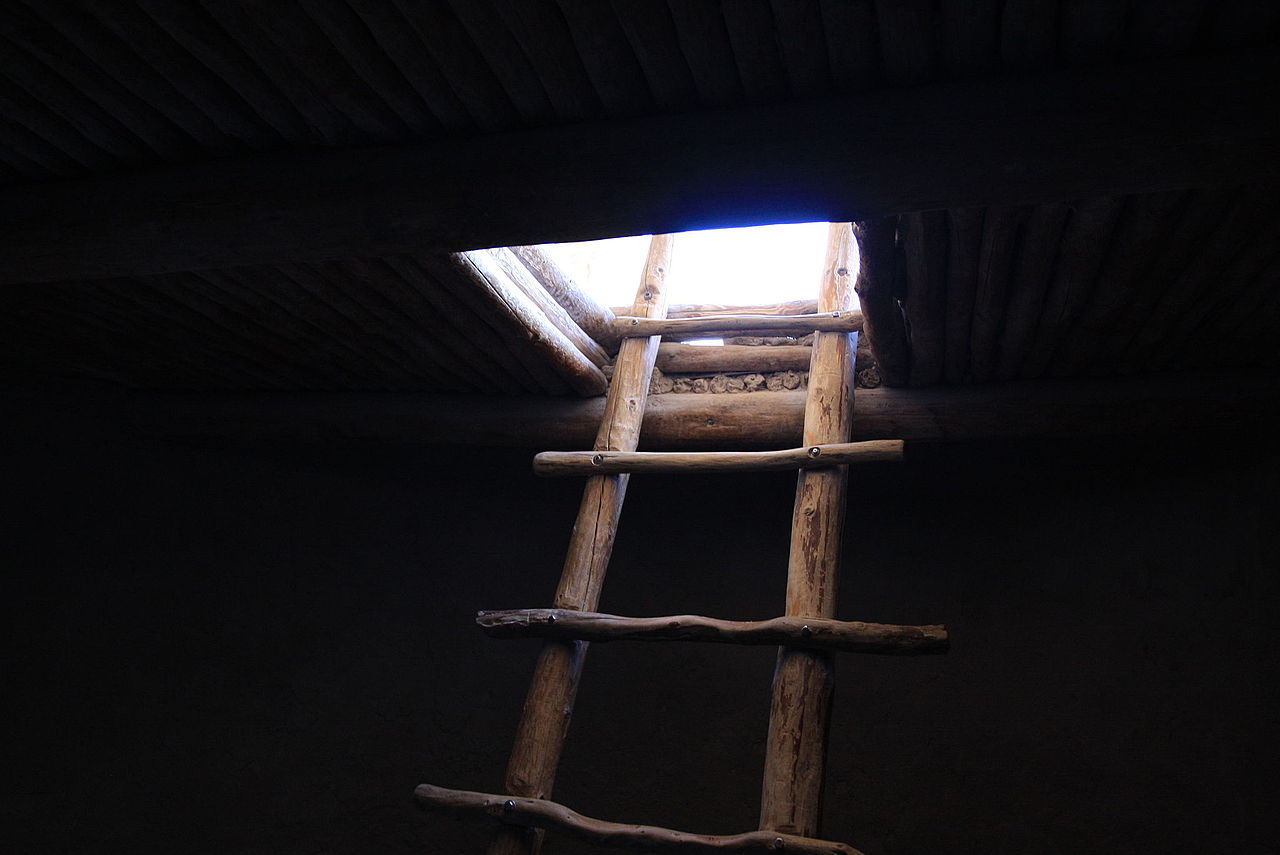
Hot tears were streaming down my face. My chest heaved up and down with heavy sobs. I couldn’t stop them, no matter what I tried.
What happened?
Did I just get bad news? Was I injured? Was it a wave of emotions from a painful memory?
The answer: none of the above. What happened was my husband Gleb asked me what time I wanted to go for our nightly walk. It was a simple question, but instead of responding, I was sobbing and I had no idea why.
What’s Going On?
I thought this was a one-time event. Maybe the stress in my work and personal life was getting to me.
Luckily, I had a week of vacation coming up. Instead of doing anything active during my week off, I decided just to rest. I spent a lot of time relaxing and took daily walks in a nearby park. I enjoyed the beautiful scenery and warm July weather. I hoped that time away from commitments and obligations was what my mind and body needed.
But it didn’t work. Day by day, things got worse.
One evening Gleb reminded me about a small chore that I had forgotten to do. Suddenly, I felt drained and started to cry. Now, I realized that his reminder was perfectly reasonable. But I had no emotional resources to handle it. It was scary to be unable to deal with such a simple situation.
The following day I met a friend for coffee. I felt pretty good at the start of our meeting. But that didn’t last long. About a half-hour later, I felt completely drained and could barely continue talking. My chest felt tight. I felt overwhelmed and distracted.
I thought I would feel better after my friend and I parted ways. I was wrong.
I continued to feel that tightness in my chest. I felt overwhelmed and anxious. It felt as if I was trying to process a huge amount of information. In reality, I was just trying to decided what to do next.
I finally decided to get some ice cream, and started browsing local shops on my phone. There were only a few places nearby, but I felt overwhelmed with the options. 10 minutes passed, and I still had not made up my mind. Finally I decided to just drive to a place near my home.
I was worried and upset that making such a simple decision caused me so much stress. It was a relief to finally have a plan of action, but I felt anxious and restless. When I started driving and got on the highway, I noticed that I had a lot of difficulty focusing on the road. I stayed in the slow lane and used what little focus I had to grip the steering wheel.
Facing The Darkness
I was forced to face the fact that the situation was getting worse and interfering with every area of my daily life.
My relationship with Gleb was starting to get strained. Many ordinary conversations either brought me to tears or caused me to lash out. Fortunately, Gleb worked really hard to adjust to this difficult situation, so we were still able to communicate with each other.
However, it was extremely difficult for me to interact with others. Even talking with my family or close friends caused me to feel extremely anxious. When I did manage to interact with someone, I ended up spending the next few hours feeling nervous and too distracted to do anything. Doing work and household tasks was becoming a big challenge, since I had to contend with unexpected bouts of crying or anxiety.
I felt scared, lost, and out of control.
I felt like I was in a tunnel, being pulled into the darkness and away from the life I worked so hard to build.
I didn’t know what was happening to me or why, but one thing was clear: I was no longer reacting to everyday situations the way I used to. Something was wrong, and that something was in my mind.

I’m Sick
There’s a common belief that our thoughts and feelings reflect our true selves and must be accepted without question. The mind is often described as something mysterious and distinct from our physical bodies.
Fortunately, due to my work with Intentional Insights, I knew this was not true. I recognized that what we think of as our mind resides in our brain, which is an organ just like any other. This physical brain creates and shapes our thoughts, feelings, and behaviors. And just like any other organ, our brain can be affected by illness, stress, chemical imbalance, trauma, and many other factors.
As for our thoughts and feelings, they often occur intuitively in reaction to our environment. I knew that they don’t always serve our best interests. Far from reflecting our authentic selves, our thoughts and feelings are sometimes in conflict with our knowledge, values, and beliefs. Most importantly, I recognized that we can influence and change our thoughts, feelings, and behaviors.
Taking Charge of My Mind
The situation showed no signs of improvement. I knew I had to do something. I desperately wanted to find a way out and get back to the life I took for granted just a week earlier.
It was up to me to decide how to rescue myself from this dark tunnel, the scariest place I ever found myself.
I couldn’t look for a solution if I didn’t know the nature of the problem. I decided to spend some time to think about the facts of the situation and try to figure out what was happening. I came to the conclusion that:
-
- I was experiencing some kind of problem with my mental health, and
-
- The problem was serious, since it was a major impediment to my daily life
This was painful for me to accept. On the other hand, this meant I could now start looking for help.
I scheduled an appointment with a therapist specializing in cognitive behavioral therapy, a type of evidence-based treatment for a variety of mental illnesses. While I was waiting to start treatment – my first appointment was three weeks away – I worked with Gleb to come up with ideas for research-based techniques that I could start using immediately to ease my anxiety and stress.
I started building a daily regimen of meditation, deep breathing exercises, and journaling. I reflected on my experience every day and looked for opportunities to tweak my routine to make it more effective. For example, while research suggests that meditation is most effective when done at the start of the day, I found that I often felt restless and distracted in the mornings. To overcome this difficulty, I started beginning my days with mindful activities, such as exercise or cooking. Doing so helped me release some energy and regain focus, making it easier to meditate.
I continued to spend most of my days battling anxiety and sudden crying spells, but these strategies started to offer some relief. When I finally met with my therapist, she approved of my daily meditation, mindfulness, and journaling activities. I was really excited that the research-based techniques we worked out together got her endorsement! She also gave me additional suggestions, such as observing my emotional and physical state in order to be more aware of changes in my mood and energy levels.
About a month after the initial crisis, I was receiving treatment and continuing to practice my new daily routine. I was glad to have tools to help me get better. While I still felt like I was in a dark tunnel, I was slowly learning about my surroundings and finding the way back.
I didn’t know how long it would take me to get out, but I was determined to keep moving, one step at a time. I finally had hope that I would recover.
Why Am I Going Public?
I had my nervous breakdown took place in the summer of 2014. Now, a year and a half later, I am doing a lot better. However, managing my mental illness still requires constant effort. I am building a new life for myself, one that is healthier and more sustainable in the long term.
I feel like the light at the end of the tunnel is finally within my reach.
So I finally decided to share my story publicly.
I know that there are many, many people who are struggling through the darkness of mental illness. However, not everyone knows that there are many research-based strategies that can ease the burden of anxiety, depression, and other mental health challenges.
I was lucky to know about many of these tools through my work with Intentional Insights. I was also fortunate enough to have access to psychotherapy, where I learned additional valuable techniques.
It’s not easy to share publicly about mental health issues. There is a lot of stigma around mental illness. I think that one way to fight it is to recognize that mental illness is very similar to other illnesses. It affects a physical organ, our brain, and it can be treated with science-based therapies.
In future blog posts, I will describe the specifics of how I adapted these research-based techniques to my needs, and how they paved my path to recovery. After all, there is no “one size fits all” remedy for treating mental illness. It’s up to each of us to adapt these strategies to our unique emotional needs.
My biggest goal for sharing my story is to empower others to fight the darkness of mental illness and find their own path toward the light.





